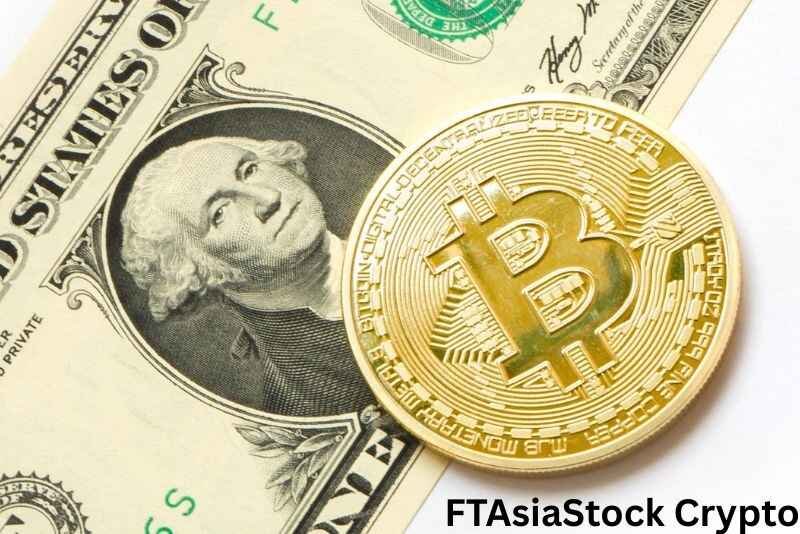Introduction to FTAsiaStock Crypto
The term FTAsiaStock Crypto represents a fascinating intersection between traditional Asian financial markets and the dynamic world of cryptocurrency trading. This concept has gained significant traction as Asia emerges as a dominant force in the global digital asset landscape. Unlike conventional crypto trading that may focus solely on Western markets, FTAsiaStock Crypto specifically examines how Asian market dynamics, regulatory environments, and investor behaviors influence cryptocurrency valuations and trading patterns.
Asia’s unique position in the crypto sphere stems from several key factors. The region boasts some of the highest cryptocurrency adoption rates globally, with countries like Japan, South Korea, and Singapore leading the charge in mainstream acceptance. Additionally, despite China’s stringent crypto bans, the country continues to indirectly shape market trends through its influence on mining operations and blockchain development. Understanding FTAsiaStock Crypto requires an appreciation of how these diverse Asian market forces converge to create distinct trading opportunities and challenges.
The Asian Crypto Market Landscape
Asia’s cryptocurrency ecosystem differs substantially from Western markets in several fundamental ways. First, the region demonstrates much higher retail participation, with millions of individual investors actively trading digital assets on a daily basis. This creates unique liquidity patterns and volatility characteristics not commonly seen in other markets. Second, Asian traders tend to favor different cryptocurrencies than their Western counterparts, with particular interest in altcoins and platform-specific tokens that may receive less attention elsewhere.
The regulatory environment across Asia presents a complex patchwork of approaches. Japan stands out as one of the most crypto-friendly nations, with clear licensing frameworks for exchanges and progressive policies toward blockchain innovation. South Korea maintains strict anti-money laundering protocols but has generally embraced cryptocurrency trading among its tech-savvy population. Singapore serves as a regional hub for crypto businesses, offering regulatory clarity while maintaining robust investor protections. In contrast, China’s comprehensive ban on cryptocurrency trading has pushed much of its crypto activity underground while paradoxically maintaining influence through its dominance in mining hardware production and blockchain patents.
Key Characteristics of FTAsiaStock Crypto Trading
FTAsiaStock Crypto trading exhibits several distinguishing features that set it apart from general cryptocurrency markets. The most notable is the pronounced impact of Asian trading hours on global crypto prices. Significant price movements often originate during Asian market hours before spreading to other regions, creating arbitrage opportunities for observant traders. This phenomenon stems from the concentration of trading volume in Asian exchanges during their local business hours.
Another critical characteristic is the prevalence of algorithmic and high-frequency trading strategies among Asian institutional investors. Many Asian hedge funds and trading firms employ sophisticated bots that can execute thousands of trades per second, contributing to the market’s liquidity while also increasing short-term volatility. Retail traders in Asia have adapted to these conditions by developing unique technical analysis approaches tailored to the region’s specific price action patterns.
The Asian crypto market also demonstrates distinct preferences regarding trading pairs. While USD-denominated pairs dominate Western exchanges, Asian platforms often feature more trading volume in local currency pairs like JPY/BTC or KRW/ETH. This creates occasional price discrepancies between regions that skilled traders can exploit. Additionally, Asian exchanges frequently list tokens from local blockchain projects earlier than their Western counterparts, providing early access to emerging investment opportunities.
Major Players in the FTAsiaStock Crypto Ecosystem
Several key institutions and organizations shape the FTAsiaStock Crypto landscape. Leading Asian cryptocurrency exchanges like Binance (originally founded in China), Huobi, and OKX process billions of dollars in daily trading volume and serve as primary liquidity providers for the region. These platforms have developed advanced trading features catering specifically to Asian market preferences, including sophisticated margin trading options and futures products.
Traditional financial institutions in Asia have begun embracing cryptocurrency services in recent years. Major Japanese banks like MUFG and SBI Holdings have launched crypto-related products, while South Korean securities firms are developing crypto-linked investment vehicles. Singapore’s DBS Bank made headlines by launching Asia’s first bank-backed cryptocurrency exchange, signaling growing institutional acceptance.
Mining operations continue to play a crucial role in Asia’s crypto ecosystem, despite China’s mining ban. Countries like Kazakhstan and Malaysia have emerged as new mining hubs, while North American and European operations often rely on hardware manufactured by Asian companies like Bitmain. This ongoing connection between Asian manufacturing and global mining operations maintains Asia’s influence over cryptocurrency network security and transaction processing.
Trading Strategies Unique to FTAsiaStock Crypto
Successful FTAsiaStock Crypto trading requires understanding strategies that capitalize on Asian market peculiarities. One effective approach involves monitoring the “Kimchi Premium,” a phenomenon where cryptocurrencies trade at significantly higher prices on South Korean exchanges compared to global markets. Savvy traders can profit from these arbitrage opportunities, though they must navigate strict capital controls and exchange withdrawal limits.
Another specialized strategy focuses on trading around Asian regulatory announcements. Cryptocurrency prices frequently experience sharp movements following statements from financial regulators in Japan, South Korea, or Singapore. Traders who can quickly interpret these announcements and anticipate market reactions often gain an edge.
Many Asian traders also employ unique technical analysis methods incorporating lunar calendar events and traditional market cycles. While these approaches may seem unconventional to Western traders, they reflect deeply ingrained cultural trading psychology that can influence market behavior during certain periods like the Lunar New Year.
Technological Innovations Driving FTAsiaStock Crypto
Asia stands at the forefront of cryptocurrency and blockchain innovation, with several technological advancements originating from the region. Chinese blockchain projects have pioneered developments in decentralized finance (DeFi) infrastructure, while South Korean teams have made significant contributions to scaling solutions and interoperability protocols.
One notable innovation is the rise of super-app ecosystems that integrate cryptocurrency services with everyday digital life. Platforms like South Korea’s KakaoTalk and Japan’s Line messenger have incorporated crypto wallets and trading features, exposing millions of users to digital assets through familiar interfaces. This integration has dramatically lowered barriers to entry for retail investors.
Asian developers have also led the way in creating specialized trading tools for cryptocurrency markets. Algorithmic trading platforms, arbitrage bots, and AI-driven market analysis tools developed in tech hubs like Singapore and Shenzhen cater specifically to the needs of FTAsiaStock Crypto traders. These tools often incorporate unique features like social sentiment analysis from Asian messaging platforms and news aggregators.
Regulatory Challenges and Compliance Considerations
Navigating Asia’s complex regulatory landscape presents ongoing challenges for FTAsiaStock Crypto participants. Each jurisdiction maintains distinct rules regarding cryptocurrency classification, taxation, and exchange operations. Japan’s Financial Services Agency (FSA) requires exchanges to obtain licenses and comply with strict security standards, while Hong Kong has developed a progressive framework that encourages innovation while maintaining oversight.
South Korea’s regulations emphasize investor protection, requiring exchanges to implement real-name verification systems and maintain partnerships with local banks. These requirements have led to market consolidation, with only a handful of exchanges meeting all compliance standards. Meanwhile, Singapore’s Payment Services Act provides clarity on digital payment token services while imposing anti-money laundering and counter-terrorism financing obligations.
China’s prohibition on cryptocurrency trading has created a unique underground market where peer-to-peer trading and over-the-counter (OTC) desks facilitate transactions despite official bans. This environment carries additional risks, including potential asset freezes and legal consequences for participants. The Chinese government’s development of its digital yuan (e-CNY) further complicates the landscape as authorities seek to maintain control over monetary flows while suppressing decentralized alternatives.
The Future of FTAsiaStock Crypto
The FTAsiaStock Crypto ecosystem continues to evolve rapidly, with several trends shaping its future trajectory. Institutional adoption is accelerating across Asia, with traditional financial firms increasingly offering crypto-related products and services. This trend should bring greater liquidity and stability to regional markets while potentially reducing extreme volatility.
Central bank digital currencies (CBDCs) will likely play a significant role in Asia’s crypto future. China’s digital yuan trials have progressed further than most other major economies, while Japan, South Korea, and Singapore are all actively researching CBDC implementations. These developments may create new opportunities for interoperability between decentralized cryptocurrencies and official digital currencies.
Decentralized finance (DeFi) adoption is growing across Asia, particularly in jurisdictions with clear regulatory frameworks. Singapore has emerged as a DeFi hub, with numerous projects establishing operations there to benefit from the supportive environment. This growth may lead to innovative financial products tailored specifically to Asian market needs and preferences.
The ongoing professionalization of cryptocurrency trading in Asia suggests continued maturation of FTAsiaStock Crypto markets. As more sophisticated risk management tools emerge and institutional participation increases, the market may develop greater resilience against manipulation and extreme volatility while maintaining the innovation that has made it so dynamic.
Conclusion: Navigating the FTAsiaStock Crypto Opportunity
FTAsiaStock Crypto represents a unique and increasingly important segment of the global cryptocurrency landscape. Its distinct characteristics—from regional trading patterns and regulatory frameworks to specialized investment strategies and technological innovations—create both opportunities and challenges for market participants.
Successful engagement with FTAsiaStock Crypto requires understanding these regional peculiarities and developing strategies that account for Asian market dynamics. Traders must stay informed about regulatory developments, technological advancements, and shifting investor sentiment across different Asian jurisdictions.
As the cryptocurrency market continues to mature, Asia’s influence will likely grow stronger. The region’s combination of technological innovation, financial sophistication, and high retail participation positions it as a key driver of cryptocurrency adoption and development worldwide. For those willing to navigate its complexities, FTAsiaStock Crypto offers access to some of the most dynamic and potentially rewarding opportunities in digital asset markets.
For more visit : https://techbullion.space/



